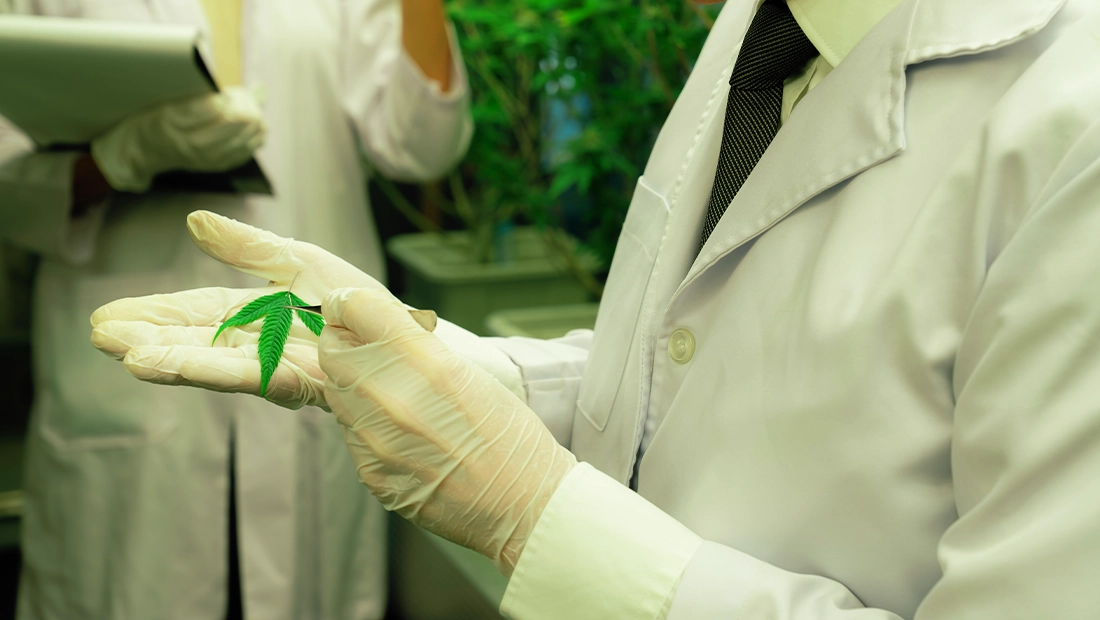Green Hands: Embracing Biodegradable Gloves in India
As environmental consciousness continues to grow, India finds itself at the forefront of the sustainability movement. The need for eco-friendly solutions has become increasingly apparent in various aspects of daily life. One such area is the use of disposable gloves, which have long been essential in numerous industries. However, the environmental impact of conventional gloves cannot be overlooked. In this context, the demand for biodegradable gloves in India has surged. These gloves provide a sustainable alternative, aligning with the nation’s commitment to reduce plastic waste and promote environmentally responsible practices. Let’s explore the significance and adoption of biodegradable gloves in India through https://www.psidispo.com/.
Traditional disposable gloves, commonly made of non-biodegradable materials like latex or synthetic polymers, pose a significant environmental threat. Their production contributes to carbon emissions, and when disposed of improperly, they can persist in landfills for decades, releasing harmful chemicals. India’s shift towards biodegradable gloves is vital. These gloves are crafted from eco-friendly materials that decompose naturally, minimizing environmental harm. Embracing biodegradable gloves is a sustainable choice that aligns with India’s commitment to reducing plastic pollution and fostering eco-conscious practices. The transition not only reduces the carbon footprint but also sets a positive example for responsible waste management.
Materials used in biodegradable gloves in India
- Natural Rubber Latex: Biodegradable gloves can be made from natural rubber latex, a sustainable material sourced from rubber trees.
- Biodegradable Plastics: Some biodegradable gloves utilize biodegradable plastics like PLA (Polylactic Acid) or PBAT (Polybutylene Adipate Terephthalate).
- Plant-Based Materials: These gloves may also incorporate plant-based ingredients, reducing reliance on fossil fuels.
- Certified Compostable: Biodegradable gloves are often certified compostable, ensuring they break down into non-toxic components during composting.
- Low Environmental Impact: Using these materials in glove production reduces the carbon footprint and plastic waste associated with traditional gloves.
Biodegradable gloves are manufactured using eco-friendly processes that prioritize sustainability and environmental responsibility. The production typically involves the following steps:
- Material Selection: Manufacturers choose biodegradable materials like natural rubber latex or biodegradable plastics derived from renewable sources. These materials are environmentally friendly and reduce the dependence on fossil fuels.
- Low-Impact Processing: The manufacturing process itself is designed to minimize environmental impact. Energy-efficient machinery, reduced water usage, and eco-friendly chemicals are often employed.
- Certifications: Manufacturers adhere to stringent certifications like ASTM D6400 or EN 13432 to ensure their gloves meet the criteria for compostability and biodegradability. These certifications guarantee that the gloves will break down into harmless components.
- Minimal Waste: Eco-conscious production aims to minimize waste generation. Scraps and waste materials are often recycled or repurposed to reduce the overall ecological footprint.
- Eco-Packaging: Biodegradable gloves are packaged in environmentally friendly materials, such as recycled cardboard or compostable bags.
By following these sustainable practices, the production of biodegradable gloves aligns with the global push towards eco-friendly alternatives and contributes to reducing plastic pollution and environmental degradation.
The benefits of biodegradable gloves
| BENEFITS OF BIODEGRADABLE GLOVES | DESCRIPTION |
| Reduced Plastic Waste | Biodegradable gloves break down naturally, reducing the accumulation of non-biodegradable plastic waste in landfills and oceans. |
| Decreased Landfill Usage | As biodegradable gloves decompose, they occupy less space in landfills, extending their lifespan and reducing the need for additional landfill sites. |
| Lower Carbon Footprint | The production of biodegradable gloves often involves fewer greenhouse gas emissions and energy consumption compared to traditional gloves made from fossil fuel-based materials. |
| Environmental Preservation | Using biodegradable materials in glove production helps preserve natural resources and ecosystems, contributing to a healthier planet. |
| Reduced Pollution | Biodegradable gloves break down into non-toxic components, preventing the pollution caused by microplastics found in traditional gloves. |
| Sustainability | By opting for biodegradable gloves, individuals and businesses demonstrate their commitment to sustainable practices and responsible consumption. |
| Compliance with Regulations | Biodegradable gloves often meet compostability standards and regulations, ensuring they pose minimal harm to the environment. |
Several businesses and industries in India are embracing biodegradable gloves as a sustainable alternative to traditional disposable gloves. In the healthcare sector, hospitals and clinics have started using these gloves to minimize plastic waste and promote eco-conscious healthcare practices. The food industry, including restaurants and catering services, is also adopting biodegradable gloves to maintain hygiene standards while reducing their environmental impact. Moreover, the hospitality industry, particularly hotels and resorts, is opting for these gloves in various departments. Additionally, eco-friendly initiatives in agriculture, waste management, and retail are gradually making biodegradable gloves a staple, contributing to a greener and cleaner India.
Challenges and misconceptions related to biodegradable gloves in the Indian market.
Challenges:
- Cost Considerations:One of the significant challenges is the perception that biodegradable gloves are more expensive than traditional ones. While they may have a slightly higher upfront cost, the long-term benefits and environmental advantages often outweigh the initial investment.
- Limited Availability: Biodegradable gloves may not be as readily available as conventional options. This can pose a challenge for businesses looking to make the switch, especially in remote or less urbanized areas.
- Consumer Awareness: Many consumers and businesses are not aware of the existence and benefits of biodegradable gloves. Lack of awareness can hinder their adoption.
- Regulatory Compliance: Adherence to quality standards and regulations related to biodegradable materials can be a challenge for manufacturers. Ensuring that biodegradable gloves meet the necessary standards is essential for their acceptance in the market.
Misconceptions:
- Biodegradable Means Less Durable: Some people mistakenly believe that biodegradable gloves are less durable than traditional ones. In reality, advancements in biodegradable materials have led to gloves that offer comparable durability and performance.
- Biodegradable Equals Rapid Decomposition: There’s a misconception that biodegradable gloves will decompose quickly, posing disposal challenges. Biodegradation depends on various factors, including environmental conditions. These gloves are designed to break down over time, not instantaneously.
- Lack of Protection: Another misconception is that biodegradable gloves provide inferior protection against contaminants. Biodegradable gloves are manufactured to meet safety and quality standards, offering adequate protection like their conventional counterparts.
- High Maintenance: Some believe that biodegradable gloves require special care or storage conditions. In reality, they can be stored and used similarly to traditional gloves.
Addressing these challenges and misconceptions through awareness, education, and regulatory support can facilitate the wider adoption of biodegradable gloves in the Indian market, contributing to a more sustainable future.
 In India, government regulations and incentives are playing an increasingly pivotal role in promoting the use of eco-friendly disposable gloves. The government is actively encouraging businesses and industries to adopt sustainable practices by offering incentives, tax breaks, and subsidies for the procurement of biodegradable gloves. Additionally, stringent regulations on plastic usage and waste management have led to a growing demand for eco-friendly alternatives. These initiatives not only benefit the environment but also encourage businesses to make responsible choices in their operations.
In India, government regulations and incentives are playing an increasingly pivotal role in promoting the use of eco-friendly disposable gloves. The government is actively encouraging businesses and industries to adopt sustainable practices by offering incentives, tax breaks, and subsidies for the procurement of biodegradable gloves. Additionally, stringent regulations on plastic usage and waste management have led to a growing demand for eco-friendly alternatives. These initiatives not only benefit the environment but also encourage businesses to make responsible choices in their operations.
Here are some tips for individuals and businesses on sourcing and using biodegradable gloves effectively:
- Identify Reliable Suppliers: Look for reputable suppliers or manufacturers of biodegradable gloves in India. Ensure that their products meet quality and eco-friendly standards.
- Check Certifications: Verify if the gloves are certified by relevant authorities for their biodegradability and environmental claims. Certifications like ASTM D6400 or EN 13432 can be indicative of compliance.
- Quantity Planning: Order gloves based on actual needs to minimize waste. Avoid overstocking to prevent unnecessary disposal.
- Proper Storage: Store biodegradable gloves in a cool, dry place away from direct sunlight to maintain their integrity.
- Use Responsibly: Train staff and users to use the gloves responsibly, avoiding unnecessary wastage.
- Dispose Correctly: Biodegradable gloves should be disposed of in compost bins or facilities designed for organic waste disposal. Ensure that users are aware of the proper disposal methods.
- Monitor Decomposition: Keep track of the decomposition rate of the gloves to ensure they are breaking down as expected.
- Feedback and Improvement: Provide feedback to suppliers on the quality and performance of biodegradable gloves to encourage improvements in their products.
- Promote Awareness: Educate employees and customers about the benefits of biodegradable gloves and the importance of responsible usage.
- Regularly Evaluate Suppliers: Continuously assess your suppliers to ensure they maintain quality and sustainability standards.
By following these tips, individuals and businesses can effectively source, use, and dispose of biodegradable gloves, contributing to a more sustainable and environmentally responsible approach to disposable glove usage.
Conclusion
The adoption of biodegradable gloves in India signifies a vital step towards a greener and more sustainable future. These gloves offer numerous environmental advantages, from reducing plastic waste to lowering carbon footprints. By choosing biodegradable gloves, we can collectively make a positive impact on our environment. Join the movement today, visit PSI Disposables to explore eco-friendly glove options, and make the switch for a cleaner, healthier planet. Your choice matters in shaping a more sustainable India.



